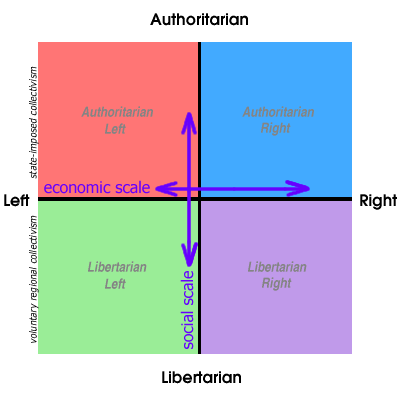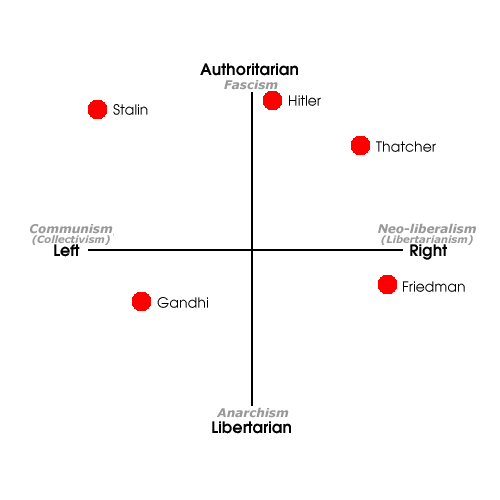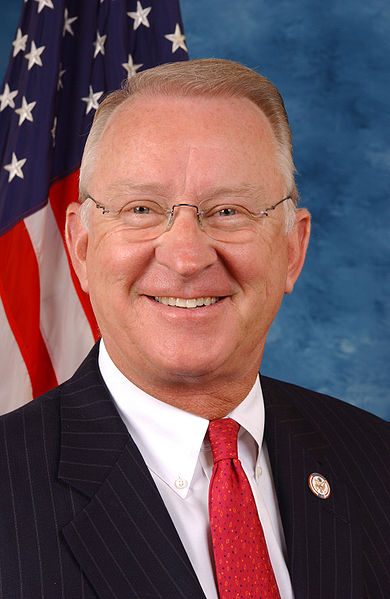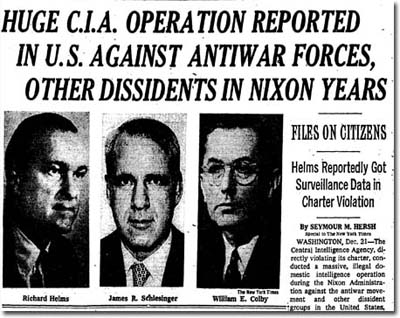
Wednesday, December 5, 2007
Obsession: Radical Islam's War Against the West

Thursday, November 29, 2007
The Republican Debate

Last night on CNN the You Tube Republican debate took place. I thought that it was very interesting to watch and that all of the candidates made very well points-perhaps excluding Ron Paul. I noticed that this debate was different than the Democratic one, not just because it was a You Tube debate, but also because there were more questions asked that dealt with “smaller” topics, while it seems as if the Democratic debate only focused on the large topics and wedge topics. I personally thought that this debate was also much more exciting than the Democratic one- and I do not say this because I like the Republicans, this is what I genuinely think. There are four candidates that I was impressed with: Mike Huckabee, Mit Romney, John McCain, and Fred Thompson. I thought that they all made very good points and I was impressed with all of them.
Mike Huckabee gave some great answers, one dealing with if he believed every word in the Bible and also if he would accept the support of gays or lesbians. Mit Romney Always formulated his answers very well- though there was a few times where it seemed that he got nervous on questions that involved the fact that he used to support abortion- but he admitted that he was wrong. John McCain is very straightforward, and I like that a lot. He is completely against abortion and he got angry with Mit Romney for the way that he answered one of the questions dealing with torture saying that he cannot comprehend how America could act that way. And then there was Fred Thompson- it seemed that he said the right things at the right times- thus making the whole crowd laugh. He seems like a straight shooter and I loved his answer to the question about what type of guns he owns, which he replied he wasn’t going to say what type of guns he own and definitely not say where they are at. The topics of gun control, abortion, gays serving in the military, space exploration, Guantanamo Bay and other important issues were discussed. All together the Republican debate was a very interesting one.
Wednesday, November 28, 2007
The Political Compass

I highly recommend that you take this test because it is very interesting to find out where you fall. It has made me want to do more research to find out exactly where I stand. My parents are conservative and thus I was instilled with those values, but perhaps I have some unknown liberal tendencies- or maybe not. Here is a picture below that explains how to read the Political Compass- The vertical line is the Economic Scale and the horizontal line is the Social Scale. Also, the two graphs below it show where the most famous political figures of our times and recent past have fallen. Then, the last one is mine. So take the test and see where you lay in the political spectrum.



Monday, November 19, 2007
Democratic Debate

One person that I actually agreed with on the immigration problem was Governor Bill Richardson. He made some great points that I really liked, and some I did not completely agree with concerning illegal immigration. He does not agree with putting up a fence around the border. Why? Its not that he would not want to, but it is that he does not believe it would work. I see his point. What type of “super fence” would we have to build in order to keep the illegal immigrants out? Would it even work? Also, he believes that the people of Mexico need a better path to citizenship. Perhaps it could be changed, but for now I believe that they need to come here legally or not at all. And, people should not get angry at the US for this belief or believe that the US is being too harsh, but Mexico needs to better provide for its poor. The main point that Richardson made that I agree with is that we should not give all of the Mexican illegals amnesty. This is just ridiculous and it would undermine one of the duties of a citizen, which is to obey a law.
Wednesday, November 14, 2007
The Second Amenment

One of the key elements to this argument is that the second Amendment does not allow an “absolute” right to bear arms because “no right is absolute.” “Just as free speech does not protect obscenity, they say, the Second Amendment does not include an unlimited right to own guns.” Just because we have free speech, doesn’t mean that we can shout “Fire!” in a crowd. This same condition could be applied to the Second Amendment. I am a member of the NRA and do believe that individuals should be able to have guns. I happen to agree with this statement by Wendy Kaminer: “The irony of the Second Amendment debate is that acknowledging an individual right to bear arms might facilitate gun control more than denying it ever could.”
Wednesday, November 7, 2007
Family Jewels
Monday, October 29, 2007
My Representative

I learned more about Buck McKeon from browsing all of the bills he has or has not supported and looking through his voting history. It’s great that I can who votes most and least like him because I can see where they are from. I find it very interesting that he votes most like David Dreier, and not some other Republican from another state. This may mean that McKeon and Dreier have a relationship and thus are voting on the same issues in the same way, but how Conservative is McKeon? After all, California is a liberal state. I got a better idea of the networking that can go on from each state, and thus, maybe there is a certain level of skewed voting. I recommend that anybody reading this find out who their Representative is at http://www.visi.com/juan/congress/ find out who your rep is and then go to opencongress.org.
Wednesday, October 24, 2007
The Interactive Constitution
The Vice President is a member of the executive and legislative branch, thus he is a member of two branches and the only person who enjoys this duality. He is also the Senate’s “presiding officer” and has the ability to be a swing vote for when the House is divided. This “is one of the checks and balances the executive branch has over the legislative branch.” Now, read the selection from the Constitution. It should make more sense the second time through. I believe that this site (http://www.constitutioncenter.org/constitution/) is very useful and beneficial to the understanding of American government and of the document that binds a nation together. So next time you hear a reference to the Constitution, or have some research or just want some clarification, visit this website and it should be immensely helpful; it was for me.
Friday, October 19, 2007
Choose Your Candidate

The quiz gives you the list of candidates that suit you from best to worst. The candidates that it gave me that suited me from best to worst went from Republican to Democratic candidates. My number one match was John McCain. I agreed with him on every issue except marriage, where I favored an amendment that would define marriage between a man and a woman. Here is the list of candidates that followed in order from which ones suited me from best to worst: John McCain, Duncan Hunter, Fred Thompson, Jim Gilmore, Mike Huckabee, Tom Tancredo, Sam Brownback, Mit Romney, Ron Paul, Rudy Giuliani, Joe Biden, Bill Richardson, Hillary Clinton, Barack Obama, John Edwards, Chris Dod, and Mike Gravel. As you can see, the list is comprehensive and although my listing of every candidate that fit me may seem superfluous, it is to demonstrate that this quiz can be very useful.
I am a Republican and knew that I was going to have a Republican candidate that fit me best. But, I did not expect it to be John McCain. I was thinking more along the lines of Mit Romney, or Fred Thompson as my number one. For certain candidates, I thought that I would agree with them on many issues, but I was very wrong. I disagreed with Mit Romney on Stem Cell research, abortion, social security and many others, but I thought we would have more in common. Not only did this quiz give me an idea of who suits me, but it also let me know that I need to do more research. I highly recommend if you want a better idea of who you should vote for (though you should not use this as your final decision maker) that you take this quiz, and if you are unsure about a question that you find information about the given topic.
Wednesday, October 17, 2007
Bankruptcy Abuse Prevention and Consumer Protection Act of 2005

The Bankruptcy Abuse Prevention and Consumer Protection Act of 2005 became official legislation on October 17, 2005. This Act was formed to make it more difficult for people to claim bankruptcy under Chapter 7 in which all debts are relinquished. Instead of making it so simple for people to file bankruptcy under Chapter 7, harsher requirements for claiming bankruptcy were issued such as: Increased attorney and liability costs, Mandatory credit counseling and debtor education, Increased attorney liability and costs and many other requirements. According to opensecrets.org the top lobbying spender of this bill was the Chamber of Commerce. The Chamber of Commerce is “the world’s largest business federation, representing over 3 million business of every size, sector and region”. Why would the Chamber of Commerce have such an interest in lobbying for the Bankruptcy Act?
The Chamber of Commerce helps to promote trade in its city, prevents unnecessary competition, and collects statistics that are beneficial to its members. So why would it be interested in the Bankruptcy Act? R. Bruce Josten Executive Vice President, Government Affairs of the U.S. Chamber of Commerce wrote a letter to the House Of Representatives that stated “bankruptcy reform will prevent wealthy debtors from using bankruptcy to wipe out the debts that they can afford to repay, and from passing those debts on to the millions of businesses and consumers who cannot afford to pay someone else’s bills.” How did this Bankruptcy Act help the Chamber of Commerce? One would assume that there is a reason that the Chamber of Commerce spent the most money on getting this act passed. As stated before, the Chamber helps to promote trade in its city. If someone files bankruptcy when they can actually afford to pay their bills, how can the Chamber promote, or even facilitate trade when others are left to pay for debts? Also, this would result in unnecessary competition because any extra money that businesses and consumers had would be spent on bills rather than furthering their business or personal wants and needs, thus their competition would have an unfair advantage.
Sunday, September 30, 2007
FOOD Share
%5B1%5D.jpg)
So what does this have to do with FOOD Share? My Theory and Practice of American Government Professor asked the class to get involved in the campus’s Service Day. So I signed up to help FOOD Share for the day. Located in Oxnard, it is part of the Nation’s Food Bank Network and it “gathers and distributes food, serving those in need through a network of charitable agencies.” (foodshare.com) Along with about fifteen other people, we took food that had been damaged during handling and packaged it into cardboard boxes. There were three main boxing areas for Cereal, Crackers and Cookies, the rest of the food went into a separate bin. The jobs were divided up: some sorted the cookies from crackers from the cereal, while others took the ripped and torn packages and taped them up. Others then boxed the food and put it in its proper area. I had none of those jobs. See, the food had already come in boxes, some were the typical corrugated shipping boxes while others were the open cardboard boxes with handle slots (like the ones that are used for produce viewing in markets or the boxes you put your food in after shopping at Costco) and there were many other boxes that I do not know the names of. All of these boxes needed to be put in the dumpster to be recycled. Our project leader wanted to maintain his reputation of using the least amount of dumpsters to be filled up with the greatest amount of cardboard boxes. I enjoy doing manual labor, and it was the most demanding task that was offered so I volunteered. For approximately three hours I unfolded, stomped on and ripped apart cardboard boxes and put them in the dumpster. Then I would hop in the dumpster and jump on the boxes to compress them as much as my weight would allow me. I have never in my life had such a dynamic relationship with cardboard boxes and will never look at them the same.
Besides what we did that day, or why we did it, who it was done for is the most important aspect. There are hungry people, who with their own economic resources could not afford to buy themselves or their family a meal and now, (in small part because of what we did) they will be able to eat. But why volunteer? Why take the time out of the day to work for no monetary profit when there are other things that are needed or wanted to be done? Whether it was for ethic, religious, moral or other reasons the fact that there was participation is what is important from a political point of view. Now, can this help someone become more democratic? Does being involved in this activity or other ones like it mean that someone is therefore more likely to become politically active because they are active in their community? From personal experience this is usually the case. But, does everyone need to be politically active? Does everyone need to vote, or do people not need to worry about voting because there is an organization that already is pushing for their interests? This is something that we have been discussing in my Gov class and is an issue that many political theorists and scientists still debate.
Monday, September 17, 2007
The Ethicist

The second question, which may actually have the need of an ethicist, deals with a contractor working on a project for which a client has allotted a week to ten days to finish, but K.C. the contractor believes that he can finish it within a few days. The question K.C. asks is if he should finish the project in three to four days and “suffer the loss of pay” or drag it out for the allotted time and receive more money. Cohen offers a great solution, which once again as with the first problem should have been executed at the time of the dilemma: tell the client that he can finish the project in a few days, but ask for more money due to his higher expertise, require a “flat fee”, or a “bonus for early completion.” This way the client won’t be paying more money than expected and K.C. can receive the same amount of money without carrying any guilt.
It is always comforting and reassuring to have a person, especially an educated and qualified one, to help you with your problems whether they are small or large. There are many problems, that with the tool of common sense can easily be solved and with no external help, leaving you with the residual feeling of accomplishment.

